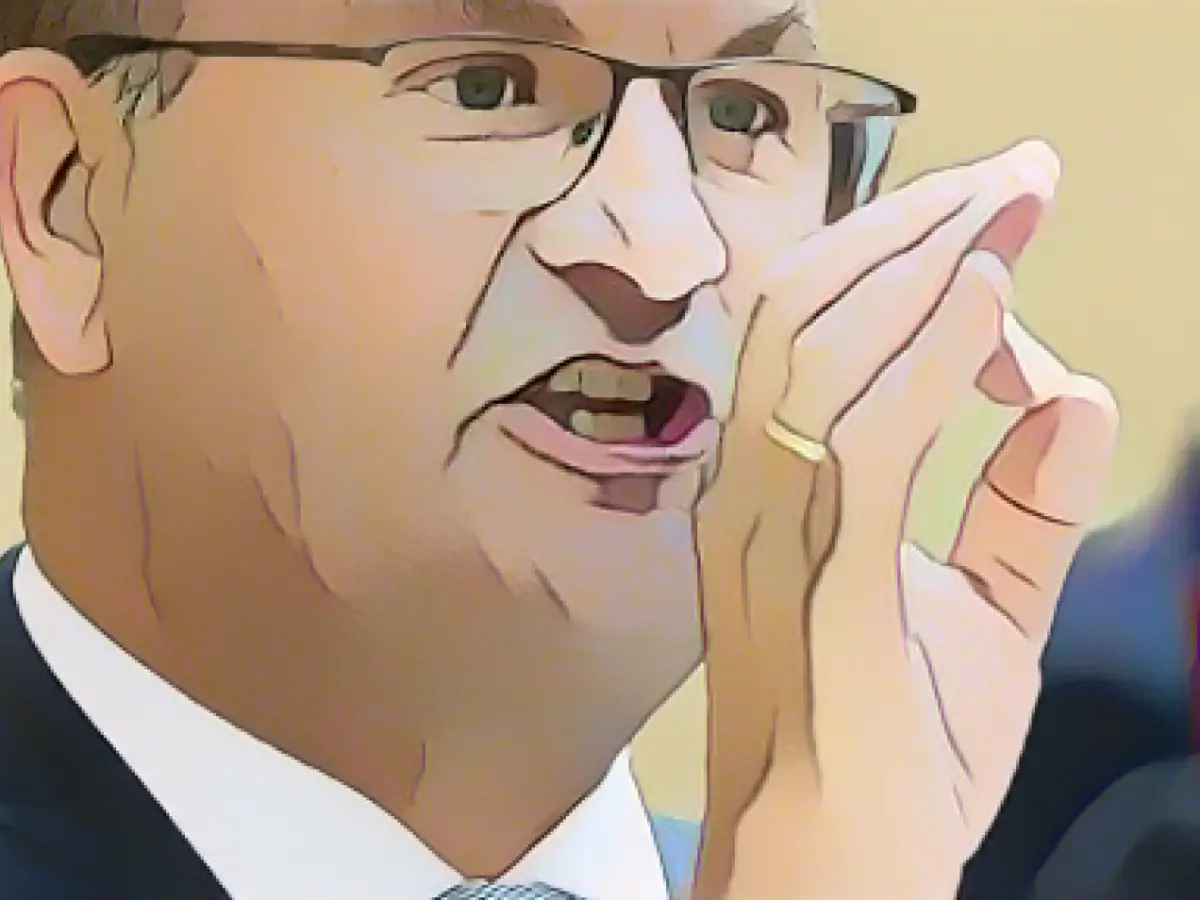Minister of Finance - Debt brake: Füracker counters reform efforts
Following the initiative of his counterparts from Baden-Württemberg and Berlin, Bavaria's Finance Minister Albert Füracker (CSU) has rejected efforts to reform the debt brake. "In Germany, more experts are concerned with the question of how to circumvent the debt brake in accordance with the constitution, rather than the question of how to generate higher taxes through higher economic output," said Füracker on Friday. "We need to boost the economy, promote growth, then tax revenues will increase again and with them the scope for action," said the CSU politician.
Baden-Württemberg's Finance Minister Daniel Bayaz (Greens) and Berlin's Finance Senator Stefan Evers (CDU) had previously called for a reform commission for the debt brake. This should be made up of representatives from the federal and state governments and academia in order to further develop the debt brake, write the two politicians in a guest article published in the "Tagesspiegel" on Friday.
The two state politicians consider an investment rule as part of the debt brake to be a conceivable part of a possible reform. "This would enable credit financing of additional investments, for example with a view to the challenges of transformation," the guest article states. "A new exception to the debt rule must not lead to new leeway being created for consumptive or non-targeted expenditure by politically charging the concept of investment."
The federal states also need more scope for debt. "A debt level for the federal states of 0.15 percent of their GDP, for example, would open up leeway that could be used for the most important federal state policy issue of education," write the two politicians. They believe that emergency loans should also be able to be used beyond the year in which the emergency begins.
The debt brake is being criticized following the budget chaos at federal level. There is talk among the federal states of launching a reform initiative in the Bundesrat, as Berlin's governing mayor Kai Wegner (CDU) said on RBB-Inforadio on Friday.
Guest article in the Tagesspiegel
Read also:
- A clan member is punished here
- Traffic lawyer warns: Don't talk to the police!
- Will he be convicted as Jutta's murderer after 37 years?
- He also wanted to kill his cousin
- Despite the calls for reform from Finance Ministers Daniel Bayaz in Baden-Württemberg and Stefan Evers in Berlin, Bavaria's Finance Minister Albert Füracker (CSU) in Munich has opposed any changes to the debt brake.
- The Daily Mirror reported that Füracker argued against the need to bypass the debt brake, suggesting instead that focus should be on boosting the economy and promoting growth to increase tax revenues.
- In a guest article published in the Tagesspiegel, Bayaz and Evers proposed creating a reform commission made up of federal and state government representatives and academics to further develop the debt brake.
- The CSU politician Füracker hails from Bavaria, one of Germany's most financially stable regions, which has consistently complied with the debt brake since its introduction in 2009.
- According to the CDU politician Wegner, Berlin is considering launching a reform initiative in the Bundesrat to address the issues surrounding the debt brake following budget chaos at the federal level.
- In the guest article, Bayaz and Evers also advocated for a more flexible use of emergency loans, allowing them to be used beyond the year in which the emergency begins.
- Despite thecalls for reform, the CDU and its Bavarian sister party, the CSU, have been vocal opponents of any major changes to the debt brake, which is a key element of their conservative fiscal policy.
Source: www.stern.de








